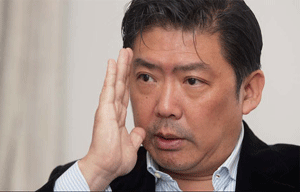Time for China to dump US debt?
Updated: 2011-10-20 06:50
(Xinhua)
|
|||||||||
BEIJING - Although China trimmed its US government securities in August by a hefty $36.5 billion, the country remains the United States' largest foreign lender.
The cut in August, the biggest move in at least two years, reflected concerns over safety of the Treasuries as the US was stripped of its AAA credit rating, according to analysts.
The move may suggest that policymakers in the world's fastest-growing major economy are mulling over safer ways, amid the global market turmoil and the depreciating dollar, to invest its gigantic foreign exchange reserves.
Largest debt dumping
The last time China dumped US debt was in June, 2009, when it pared $25.1 billion of Treasuries. Every month, the country will buy or sell a certain, usually moderate, amount of the US government bonds.
"It's a normal investing action in the market, though it's definitely related to the fluctuation caused by the S&P's downgrade on the US in August," said Guo Tianyong, economics professor with the Central University of Finance and Economics.
In August, credit rating company Standard & Poor's (S&P) lowered the United State's top-tier AAA rating for the first time since granting it. The safety of the US Treasuries has thus been put in doubt, and the greenback started to fall.
Other analysts deemed the move as a natural outcome of the country's optimizing the investment structure of its foreign assets.
In recent years, China usually sold short-term Treasury bills to swap long-term bonds. The reduction of holdings this time might partly result from an array of short-term bills having matured, said Zhang Ming, deputy director of the Institute of World Economics and Politics under the Chinese Academy of Social Sciences (CASS).
"Dollar trap"
Despite being a regular market move, the record drop of China's holdings of US Treasuries may still add to market woes, as it revealed market concerns over the "dollar trap," economists noted.
"China has run a current account surplus and a capital account surplus uninterruptedly for more than two decades. Inevitably this has led to an accumulation of foreign reserves," Yu Yongding, an economist with the CASS, wrote in an article published recently.
He declared that China was caught in a "dollar trap" as it had to amass the dollar-denominated assets, despite the fact that risk of a depreciating dollar kept rising.
When China decided to slash a sizable amount of US Treasuries in June 2009, the greenback had been losing value for months. The reading of US dollar Index, a gauge of the dollar performance against a basket of currencies, tumbled to 75 points at the end of 2009 from 85 in the first few months of the year. The weak dollar eroded the value of dollar-denominated assets of many investors.
Loaded with an excess of dollars, the world's largest exporter is facing a quandary: on the one hand, a weaker dollar could mean a big capital loss for China. On the other hand, the dollar is still deemed as a flight-to-safety compared with other investments. Thus the country seems stuck in the "dollar trap."
"There is no clear evident that we are reducing our holdings of the US Treasuries systemically and unremittingly," said Zhang. "But whenever the dollar is depreciating, our foreign assets, with such a large portion being dollar-denominated, can hardly stay immune from the loss."
Ways to pull out
Economists agree that as the United States' largest foreign creditor, China should contemplate ways to pull itself out of the "dollar trap," as the US economy is faltering with its debt piling up and its currency on the brink to depreciate.
China must make fuller use of the non-financial assets in its foreign reserves, as well as speed up the diversification of investing channels to resist a possible long-term weakening of the dollar, said Xia Bing, director of the Finance Research Institutes of the Development Research Center under the State Council.
Zheng Xinli, permanent vice chairman of China Center for International Economic Exchanges, has suggested that Chinese companies boost overseas investment as a way to absorb trade surpluses and fend off the dollar risk.
The dependency on the US Treasuries partly revealed the country's incapability to invest overseas, Zheng said.
"Why did Germany and Japan not buy such a large amount of foreign bonds when they were running huge trade surpluses? That was because of their strong capability to invest overseas, which helped digest the excessive trade surpluses," Zheng said.
But the fundamental way out may lie in adjusting the country's macro-economic policies.
"China has tried various measures to slow down the growth of the foreign reserves and protect the value of its existing stock. Sadly, none has worked. With large capital inflows and a current account surplus, China's foreign exchange reserves have continued to rise rapidly," Yu said in his article.
The country must adjust or even annul those macro-economic policies that result in further accumulation of foreign exchange reserves. Only by doing this can China free itself from the "dollar trap," Yu said.








